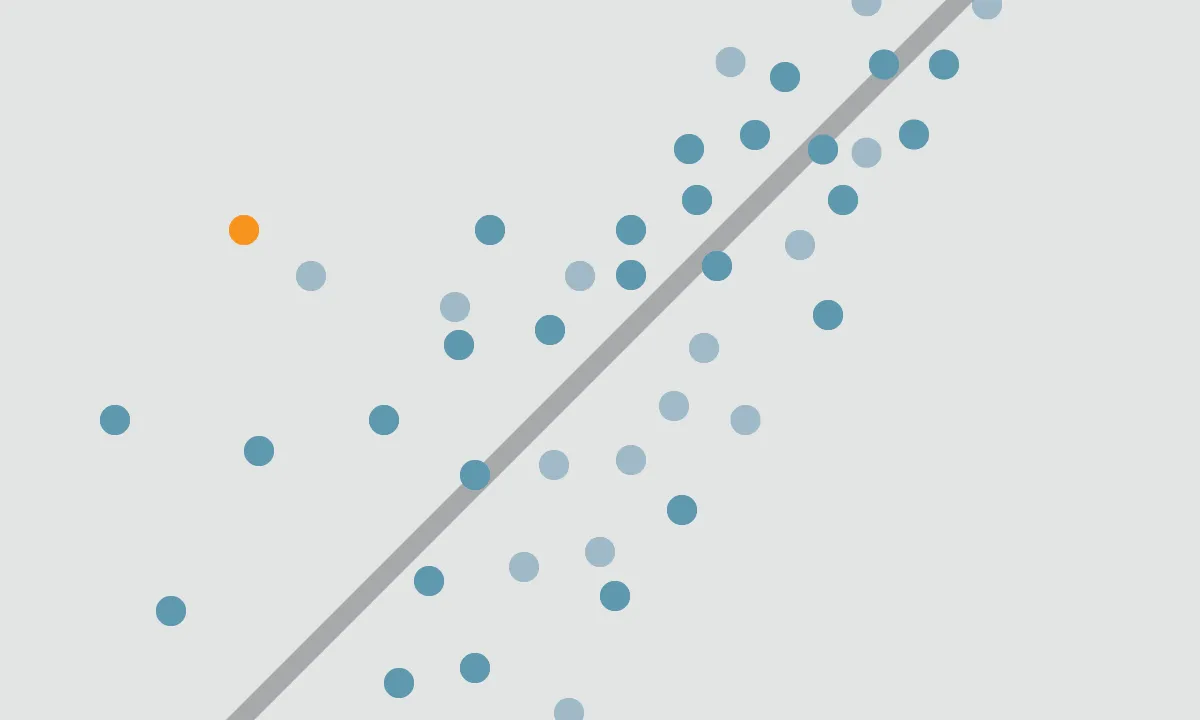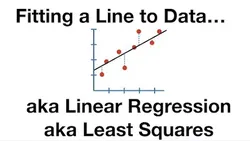
Linear Regression and Modeling 
This course provides an introduction to linear regression models, allowing students to assess the relationship between variables in a data set and a continuous response variable. Through data examples, students will learn to fit, examine, and utilize regression models to examine relationships between multiple variables, using the free statistical software R and RStudio. ▼
ADVERTISEMENT
Course Feature
![]() Cost:
Cost:
Free
![]() Provider:
Provider:
Coursera
![]() Certificate:
Certificate:
Paid Certification
![]() Language:
Language:
English
![]() Start Date:
Start Date:
10th Jul, 2023
Course Overview
❗The content presented here is sourced directly from Coursera platform. For comprehensive course details, including enrollment information, simply click on the 'Go to class' link on our website.
Updated in [March 06th, 2023]
Linear Regression and Modeling is a course designed to introduce students to the fundamentals of linear regression and modeling. This course will cover the theory behind linear regression and how to use the free statistical software R and RStudio to fit, examine, and utilize regression models to examine relationships between multiple variables.
The course will begin by introducing the concept of linear regression and the assumptions that must be met for linear regression to be valid. Students will then learn how to fit linear regression models using R and RStudio. This will include learning how to interpret the output of the model and how to assess the quality of the model.
Next, the course will cover multiple linear regression models. This will include learning how to fit multiple linear regression models, how to interpret the output of the model, and how to assess the quality of the model.
Finally, the course will cover how to use linear regression models to examine relationships between multiple variables. This will include learning how to use linear regression models to assess the relationship between physical attractiveness of a professor and their student evaluation scores, as well as how to predict the test score for a child based on certain characteristics of his or her mother.
By the end of the course, students will have a strong understanding of linear regression and modeling, and will be able to use the free statistical software R and RStudio to fit, examine, and utilize regression models to examine relationships between multiple variables.
[Applications]
The application of this course can be seen in many areas. For example, linear regression models can be used to predict the outcome of a medical treatment based on patient characteristics, or to predict the success of a marketing campaign based on customer demographics. Additionally, linear regression models can be used to identify relationships between variables in a data set, such as the relationship between a student's test scores and their mother's education level. Finally, linear regression models can be used to identify trends in data over time, such as the relationship between the number of hours of sleep a person gets and their productivity.
[Career Paths]
1. Data Scientist: Data Scientists use linear regression models to analyze data and uncover insights. They use these models to identify trends, predict outcomes, and make decisions. Data Scientists are in high demand and the field is expected to grow significantly in the coming years.
2. Business Analyst: Business Analysts use linear regression models to analyze data and make decisions. They use these models to identify trends, predict outcomes, and make decisions. Business Analysts are in high demand and the field is expected to grow significantly in the coming years.
3. Machine Learning Engineer: Machine Learning Engineers use linear regression models to develop algorithms that can learn from data and make predictions. They use these models to identify patterns, predict outcomes, and make decisions. Machine Learning Engineers are in high demand and the field is expected to grow significantly in the coming years.
4. Quantitative Analyst: Quantitative Analysts use linear regression models to analyze data and make decisions. They use these models to identify trends, predict outcomes, and make decisions. Quantitative Analysts are in high demand and the field is expected to grow significantly in the coming years.
[Education Paths]
1. Bachelor of Science in Statistics: A Bachelor of Science in Statistics is a great way to gain a comprehensive understanding of linear regression and modeling. This degree program will provide students with the skills and knowledge to analyze data, develop models, and interpret results. Students will also learn about the latest trends in data analysis and modeling, such as machine learning and artificial intelligence.
2. Master of Science in Data Science: A Master of Science in Data Science is a great way to gain a deeper understanding of linear regression and modeling. This degree program will provide students with the skills and knowledge to analyze data, develop models, and interpret results. Students will also learn about the latest trends in data analysis and modeling, such as machine learning and artificial intelligence.
3. Doctor of Philosophy in Applied Statistics: A Doctor of Philosophy in Applied Statistics is a great way to gain an advanced understanding of linear regression and modeling. This degree program will provide students with the skills and knowledge to analyze data, develop models, and interpret results. Students will also learn about the latest trends in data analysis and modeling, such as machine learning and artificial intelligence.
4. Master of Science in Machine Learning: A Master of Science in Machine Learning is a great way to gain an in-depth understanding of linear regression and modeling. This degree program will provide students with the skills and knowledge to analyze data, develop models, and interpret results. Students will also learn about the latest trends in data analysis and modeling, such as deep learning and natural language processing.
Course Syllabus
About Linear Regression and Modeling
This short module introduces basics about Coursera specializations and courses in general, this specialization: Statistics with R, and this course: Linear Regression and Modeling. Please take several minutes to browse them through. Thanks for joining us in this course!Linear Regression
In this week we’ll introduce linear regression. Many of you may be familiar with regression from reading the news, where graphs with straight lines are overlaid on scatterplots. Linear models can be used for prediction or to evaluate whether there is a linear relationship between two numerical variables.More about Linear Regression
Welcome to week 2! In this week, we will look at outliers, inference in linear regression and variability partitioning. Please use this week to strengthen your understanding on linear regression. Don't forget to post your questions, concerns and suggestions in the discussion forum!Multiple Regression
In this week, we’ll explore multiple regression, which allows us to model numerical response variables using multiple predictors (numerical and categorical). We will also cover inference for multiple linear regression, model selection, and model diagnostics. There is also a final project included in this week. You will use the data set provided to complete and report on a data analysis question. Please read the project instructions to complete this self-assessment.Pros & Cons

Clear and easy to follow instruction.

Comprehensive example of running a regression.

Good for learning statistics and R.

Shallow and brief content.

Poor quality compared to other courses.

Unhelpful forums.
Course Provider

Provider Coursera's Stats at AZClass
Discussion and Reviews
0.0 (Based on 0 reviews)
Explore Similar Online Courses

ES6 Javascript: The Complete Developer& Guide

How to use Burpsuite professional like pro

Python for Informatics: Exploring Information

Social Network Analysis

Introduction to Systematic Review and Meta-Analysis

The Analytics Edge

DCO042 - Python For Informatics

Causal Diagrams: Draw Your Assumptions Before Your Conclusions

Whole genome sequencing of bacterial genomes - tools and applications

Data Science: Linear Regression

Simple Linear Regression for the Absolute Beginner

Linear Regression and Linear Models
 Related Categories
Related Categories
 Popular Providers
Popular Providers
Quiz
 Submitted Sucessfully
Submitted Sucessfully
1. What is the main purpose of linear regression models?
2. Which software is used to fit, examine, and utilize regression models to examine relationships between multiple variables?
3. What is the main focus of this course?
4. What is the purpose of linear regression models?
Correct Answer: To assess the relationship between variables in a data set and a continuous response variable.


Start your review of Linear Regression and Modeling